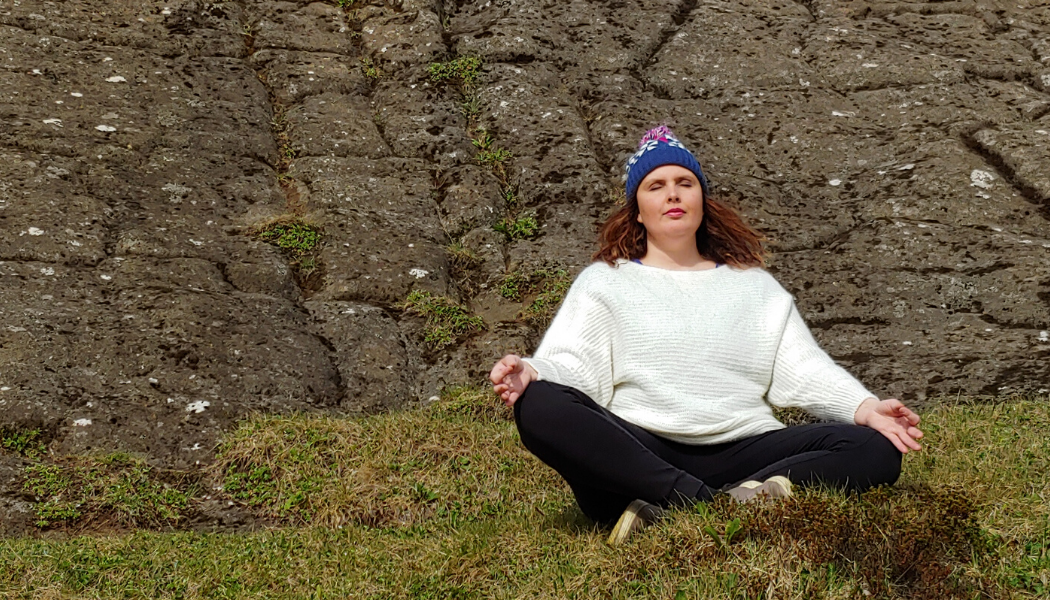The Holidays can often be a stressful time so here the three most important tips that help you stay calm and get you trough the season.
Already feeling the stress and overwhelm build up? Listen to this short video and get your key take-a-ways.
Video not working – Watch it on Vimeo? Click here!
Rather read a transcript of the video? Transcript of the video is at the bottom of this page.
Here is a short summary of the video content
- Breathe deeply
Deep belly breaths are my go-to method – ALWAYS. When you breathe deeply you collect yourself and connect to your body. That helps you move from the busy mind into the body, bringing an instant calm. With every inhale you breathe in a little bit of calm and with every exhale you let go of some of the stress and overwhelm. Take three deep breaths and then check-in with your body and mind and notice what is there. JUST BREATHE AND BE. - Be mindful
From the deep breaths we move into mindfulness. This way we can dig a little deeper on what is going on in our mind and body. It’s important to name the thoughts and feelings from a viewer’s perspective and just notice what is there. The key in mindfulness is doing this without judgement and that is always the tricky part because we are so used to being hard on ourselves. So just name what is there and say to yourself that this is normal. I’m feeling stressed. Yes that is normal during the Holiday season. I’m feeling overwhelmed. Yes that’s normal too.
- Connect to your body
Connecting to your body is a way to activate that soothing part of yourself. You’re already doing this with deep breathing. Try giving yourself a hug and rub the upper arms. Try swaying from one side to the other. This always brings calm and relaxations to the body and helps you move the focus away from your busy mind.
So these are my most important tips to stay calm over the Holidays. Maybe you need to use these often and maybe you don’t. Maybe you would like to put a reminder on your phone so you remember those easy to use tips and tricks.
I think that’s the hardest part – to remember to use them – as well as remembering how powerful these simple tips are and how they can help you find your inner peace and calm when you need it.
Enjoy the Holidays!
Love,
Ragna
P.s. If you want more easy to use tips and tricks that work like a charm, check out my resource page. Open in a separate internet browser if you are reading this from your facebook page.
Transcript of the video
Already feeling the stress of the holidays. I’ve got just the thing for you.
First of all, just breathe. Take a deep breath in,
Be. Hold it a tiny bit, and then just let it all out. Ah,
And again, take a deep breath in, feel your belly,
feel your chest, and then let go. Ah,
yes, you might want to keep breathing like this and feel the stress go
this way. You can collect yourself, connect with yourself,
and, and maybe not be as stressed. So tip,
this was my number one tip, and this is always my number one tip.
And that’s deep breathing.
Number two, be mindful,
mindful of what you are thinking because we are so caught up with,
um, uh,
all the things that we have put on our plates because usually we,
we have a lot of things on our plate during the season.
And so being mindful really means just take,
take a deep breath and then notice your thoughts and say, Hey,
what’s going on in my, in my head? Um,
what can I look at it from like a viewer’s perspective
and say, oh, yes, I’m feeling overwhelmed. Yes, I’m feeling stressed. Yes,
I’m feeling anxious. I feel like this is too much. Just name those feelings.
And the tricky part is to do it without judgment. It’s like,
um, so that’s the tricky part in mindfulness has to,
has to do with the non-judgment part.
So when you just name the feelings and see how you’re,
you’re doing and the thoughts, you say, oh yes, there’s this thought. Yes,
that’s normal. Yes. Then, then this, this thought and this feeling is there.
Yeah, that’s normal. I can see, I can see it. So that’s a good point.
And the third thing is to just connect to your body.
You do it already when you are, um, taking deep breaths,
you are connecting to your body and put, uh,
you can activate more soothing part of yourself.
If you just give yourself like a little hug, maybe you rub your upper arms,
what you’re doing, and if you sway like this,
it really brings you calm. And,
and that’s really important because when we have the calm,
we can choose our attention. We can choose what we focus on. We can,
we can,
we can have more choice and not feel so stressed and overwhelmed.
So those are my top three tips.
Deep breathing,
Being mindful without judgment and naming the feelings
and the thoughts that we are having and noticing them,
and then connecting to our bodies
And maybe give ourselves a hug and swing our body.
It’s even better when you do, like,
when you stand upright and you just connect that way.
Enjoy.



